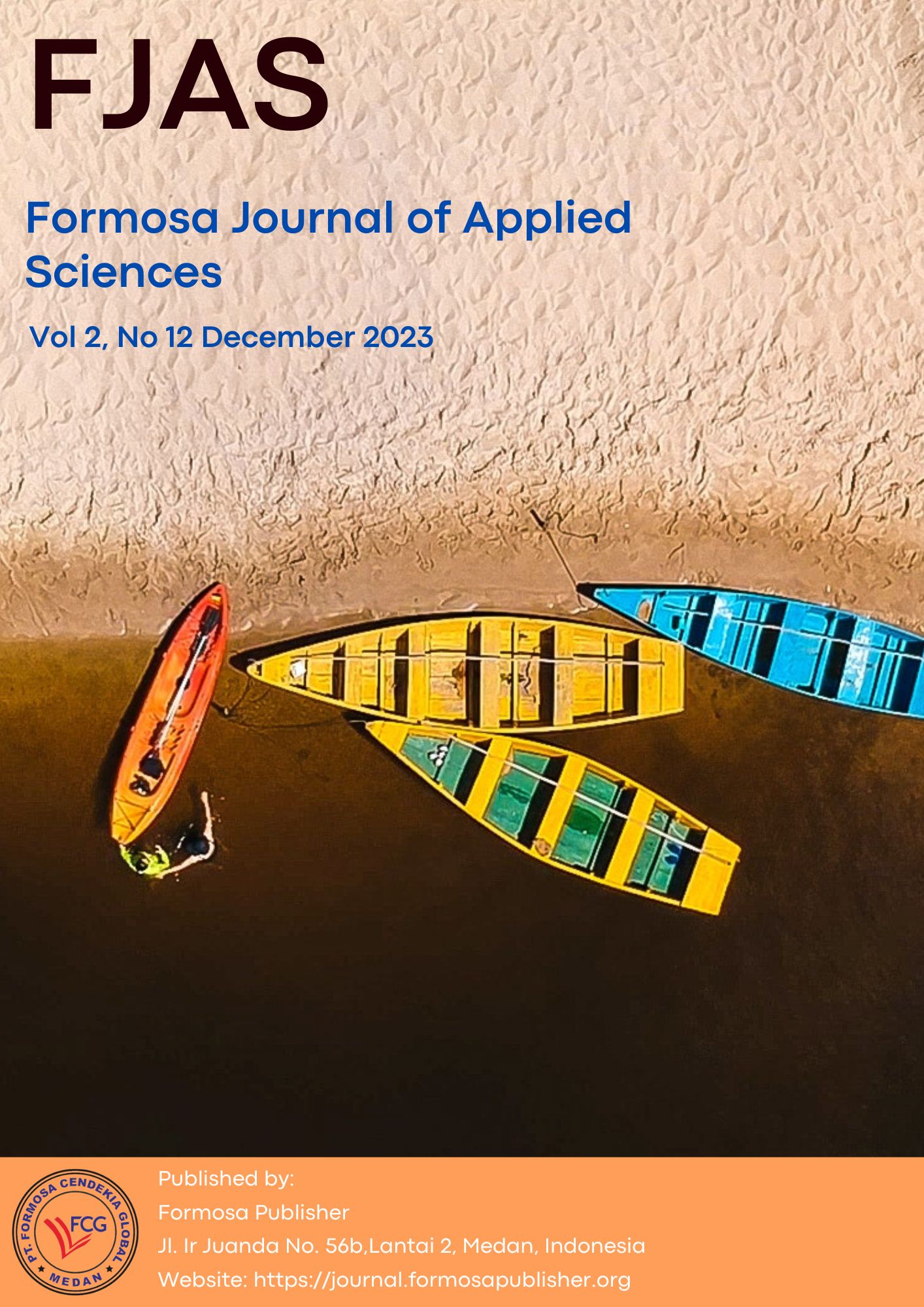The Influence of Deposit Interest Rates, BI 7 Day Reverse Repo Rate and Inflation on the Composite Stock Price Index in BEI during the 2020 - 2022 Pandemic
DOI:
https://doi.org/10.55927/fjas.v2i12.7100Keywords:
Deposit Interest Rate, BI7 Day Reverse Repo Rate, Inflation, IHSGAbstract
The aim of this research is to determine and understand the potential relationship between inflation, BI 7-day reverse repo rate, and deposit interest rates on the JCI movement in 2020 to 2022. The research approach used is a quantitative descriptive variation. This method uses three years of observational secondary data, to be precise from 2020 to 2022. Using Eviews 12 software, statistical tests and multiple regression analysis techniques are used in the data analysis process. The findings of this study show that the BI 7-day reverse repo rate and deposit interest rates both have quite a large and beneficial influence on the JCI movement. These results provide important information regarding stock market dynamics and economic variables that influence fluctuations in the IHSG value during the specified research period.
Downloads
References
Djajanto dan Maskur. (2023). Pengaruh Inflasi Dan Suku Bunga (SBI) Terhadap Pergerakan Indeks Harga Saham Gabungan (IHSG) Pada Kondisi Bullish Di Era Covid-19. Journal of Social Science Research, 3(3).
Gujarati. (2006). Ekonometrika Dasar. Jakarta: Erlangga.
Gunawan. (1991). Anggaran Pemerintah dan Inflasi di Indonesia. Jakarta: Gramedia Pustaka Utama.
Hartono. (2010). Metodologi Penelitian Bisnis: Salah Kaprah dan Pengalaman-Pengalaman. Yogyakarta: BPFE UGM.
Hatta. (2013). Pedoman Manajemen Informasi Kesehatan Disarana Pelayanan Kesehatan. Jakarta: UI Press.
Joven dan Trisnadi. (2012). Analisis Pengaruh Tingkat Inflasi, Tingkat Suku Bunga SBI dan Nilai Tukar Rupiah Terhadap Indeks Harga Saham Gabungan (IHSG) di Bursa Efek Indonesia.
Lypsey. (1997). Pengantar Makroekonomi. Jakarta: Bina Rupa Aksara.
Mankiw. (2003). Teori Makro Ekonomi. Jakarta: Erlangga.
Priyatno. (2011). Belajar Cepat Olah Data Statistik dengan SPSS. Yogyakarta: Penerbit Andi.
Rahardja dan Manurung. (2004). Teori Ekonomi Makro Suatu Pengantar. Fakultas Ekonomi UI.
Samuelson. (2010). Ilmu Mikro Ekonomi. Jakarta: Media Global Edukasi.
Silaban. (2023). Pengaruh Nilai Tukar Rupiah, BI Rate dan Inflasi Terhadap Indeks Harga Saham Gabungan (IHSG) Di Bursa Efek Indonesia Periode Tahun 2017-2021. Journal UBT.
Sufitri. (2017). Pengaruh Suku Bunga BI 7 Days Reserve Repo Rate Dan Tingkat Inflasi Terhadap Indeks Harga Saham Gabungan (IHSG) Pada Bulan April - Desember 2016. Jurnal UGM.
Suliyanto. (2011). Ekonometrika Terapan: Teori dan Aplikasi dengan SPSS. Jakarta: Penerbit Andi.
Sutha. (2010). Menuju Pasar Modal Modern. Jakarta: Yayasan SAD Satria Bhakti.
Tandelilin. (2010). Portofolio dan Investasi Teori dan Aplikasi. Yogyakarta: AMP YKPN.
Tandidatu. (2018). pengaruh Jam Kerja, Jumlah Pembeli, dan Lokasi Berdagang Terhadap Pendapatan Pedagang Perempuan di Pasar Tradisional Blimbing Kota Malang. Jurnal Ilmiah Mahasiswa FEB.
Wijayanto. (2010). Pengaruh Kurs, Bi Rate Dan Inflasi Terhadap IHSG di BEI Periode 2014-2017. Jurnal Polines, 7(1).
Yohanes. (2013). Pengaruh Penerapan Standar Akuntansi Pemerintahan dan Kualitas Aparatur Pemerintah Daerah Terhadap Kualitas Laporan Keuangan. STIE Semarang.
Downloads
Published
How to Cite
Issue
Section
License
Copyright (c) 2023 Anastasya Tindaon, Tri O. Rotinsulu, Mauna Th. B. Maramis

This work is licensed under a Creative Commons Attribution 4.0 International License.








.png)















